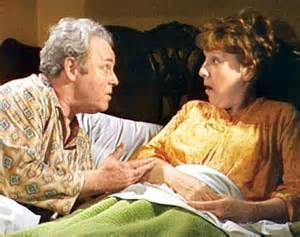
In a striking homage to its legacy, ABC remade an All in the Family episode in 2019, recreating the Bunker family home with meticulous detail. Woody Harrelson and Marisa Tomei stepped into the iconic roles of Archie and Edith Bunker, navigating a plot centered on a Vietnam War draft dodger’s unexpected return during the holiday season. This episode, originally airing in 1976, tackled the still-fresh wounds of the Vietnam conflict—a bold choice for a sitcom in its time.
When the episode aired, the country was grappling with a divisive political landscape, much like today. The parallels between the social tensions of the 1970s and contemporary issues underscore All in the Family’s enduring relevance. Fifty years after its debut, the show remains a cultural touchstone for exploring complex social themes, from war to race and gender dynamics.
All in the Family broke the mold of 1970s television, which largely featured sanitized, idealized depictions of family life. Before Archie Bunker’s entrance into American living rooms, sitcoms typically presented white, middle-class families without tackling controversial subjects. The show’s creators, Norman Lear and Bud Yorkin, transformed television by introducing a working-class hero who openly expressed his prejudices and fears. Archie epitomized the “Silent Majority”—conservatives who felt marginalized during a time of significant change.
Carroll O’Connor’s portrayal of Archie added depth to what could have been a one-dimensional character. While Archie’s views were often reactionary, he was also portrayed with a hidden kindness, making him a complex figure rather than a straightforward villain. This nuanced characterization allowed the show to tackle heavy topics while still retaining humor, inviting audiences to engage in difficult conversations about societal change.
Throughout its nine-season run, All in the Family delved into pressing issues such as the Vietnam War, the Watergate scandal, and evolving societal norms around race, gender, and politics. Lear aimed to illustrate that bigotry exists not just in the extremes but within “the hearts and minds of good people,” fostering a deeper understanding of intolerance in society.
By blending comedy with critical social commentary, All in the Family became a platform for cultural reflection and change. It opened the door for more diverse and working-class narratives in television, paving the way for future shows that continue to challenge societal norms.
As we look back on its 50-year legacy, the show’s humor and its exploration of the American experience remain remarkably relevant, highlighting the ongoing struggles that families face and prompting viewers to reflect on their own beliefs and biases. The resonance of Archie Bunker today serves as a reminder of the importance of dialogue in understanding the complexities of our society
